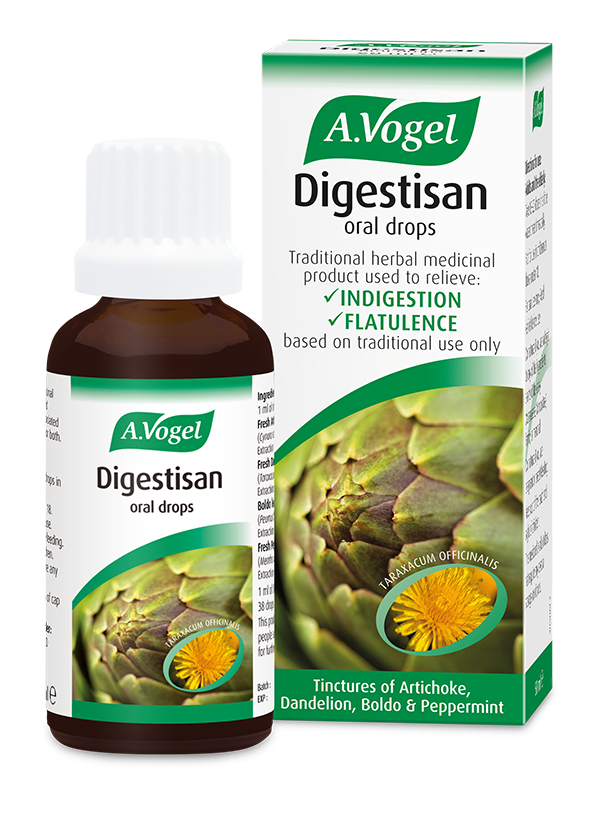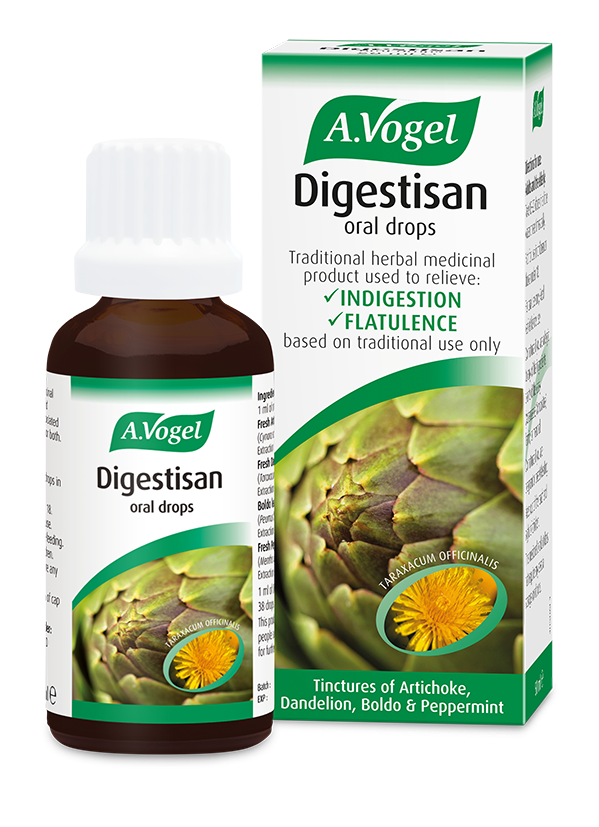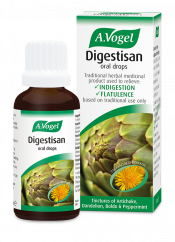An introduction to indigestion and bloating
The term ‘bloating’ can often be used to describe different experiences. This is because bloating can arise as a result of a number of digestive issues. In some cases it can affect the stomach, in which case indigestion is a common cause; whilst in other cases it might more readily affect the lower abdomen, in which case IBS, constipation, or dysbiosis may be to blame.
When it comes to indigestion and bloating, as described in our webpage ‘The 5 F’s of bloating’, bloating in this case may mean that the tummy is distended as a result of excess food or flatulence (gas).
What is indigestion?
‘Indigestion’, meaning ‘improper digestion’, commonly affects the upper part of the digestive system, including the oesophagus and the stomach.
Indigestion may arise for a number of reasons, for example low stomach acid is a common factor. As a result of this, it is often associated with the improper or delayed breakdown of the food in our stomachs which can give rise to feelings of fullness, discomfort, bloating, nausea and the need to belch.
Over time, further irritation of the stomach can occur, and additional symptoms such as acid reflux may also become apparent.
How can indigestion cause bloating?
Indigestion generally means ‘improper digestion’ and as a result, there is the risk of improper or the incomplete breakdown of food in the stomach. This means the stomach can become distended as a result of being loaded up with excess food, but also as a result of this, the formation of excess gas is likely.
Without sufficient stomach acid (a common cause of indigestion), the food we eat isn’t properly broken down, and instead comes under attack by bacteria that naturally reside throughout our digestive tract. As bacteria feast on food, they release gas which can result in bloating.
In addition to this, without sufficient stomach acid, bad bacteria can more easily increase in numbers. The effects of bad bacteria are thought to be even more extreme, and an overgrowth in unfriendly bacteria is likely to heighten symptoms such as bloating, distension and discomfort.
What can I try at home for indigestion?
To help keep indigestion and the resultant bloating associated with it under control, there are some simple steps you can take at home which might come in handy:
- Manage your eating habits – How you eat can really have a surprising influence over symptoms of indigestion and bloating. Be sure to eat slowly and deliberately and chew each mouthful properly – up to 20 times is preferable! Don’t eat on the run (this is stressful and your digestive functions won’t be working optimally) and don’t overeat – if you eat slowly you should know in plenty of time when you are starting to feel full
- Keep a food diary – Of course, what you eat is important as well as how you eat. It can be really useful to keep a food diary in order to identify any potential trigger foods. Some people, for example, are thought to lack the enzyme lactase which is important for breaking down the lactose in dairy products. As a result bloating is very likely. If you can identify trigger foods, you can limit them or find alternatives to achieve a happier tum
- Avoid creating excess gas! If you already struggle from indigestion and excess gas, it’s important not to introduce any extra gas. Some tips, as above, include not eating too quickly (this means you can swallow air), avoiding chewing gum which can create the same problem, and avoiding products such as fizzy drinks which have extra gas in already.
How can natural remedies help?
For relief of bloating associated with indigestion, there are some herbal remedies which may be suitable:
- Digestisan – Digestisan is a traditional herbal remedy used to help relieve symptoms of indigestion. The balance of bitter herbs and peppermint are both stimulating, yet soothing for the stomach.
- Molkosan – Rich in L+lactic acid, Molkosan helps support the pH throughout the digestive tract and create a supportive environment for our gut bacteria.
Can my doctor help?
Doctors may prescribe antacid medication depending on your symptoms. Always be sure to check up on any associated side effects, and if your symptoms don’t improve always return for a medicine review.









